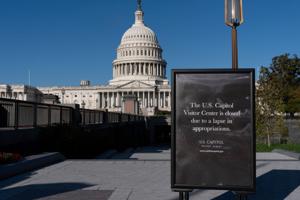Salesforce has reiterated its commitment to hiring entry-level employees, despite the increasing automation of jobs through artificial intelligence (AI). During a press conference at Dreamforce 2025, UK and Ireland Chief Executive Zahra Bahrololoumi addressed concerns surrounding AI’s impact on junior positions, which she described as a widespread fear within the industry. Bahrololoumi emphasized that eliminating entry-level roles should not be part of any company’s strategy, urging organizations to reconsider their approach.
“Our message here is: do not sacrifice your entry-level jobs,” said Bahrololoumi. “You need people who can work through processes alongside AI to manage and lead that composition of digital and human capital.”
The firm is actively collaborating with UK educational institutions, including Brunel University, to address skills shortages. Paul O’Sullivan, UKI Chief Technology Officer at Salesforce, noted the company’s involvement in a UK government initiative aimed at training 7.5 million workers in AI skills by 2030. Bahrololoumi warned that if companies stop hiring entry-level employees, they risk lacking the necessary talent to navigate the evolving job landscape shaped by technology.
Despite Salesforce’s push for entry-level hiring in the UK, the company is also implementing significant job cuts in other regions, largely driven by AI capabilities. Marc Benioff, CEO of Salesforce, has highlighted how tools like Agentforce allow the company to reduce staffing costs and streamline hiring processes across various departments, including customer support and software engineering. He recently disclosed that Salesforce has reduced customer support roles by approximately 50% due to the effectiveness of its AI tools.
Bahrololoumi and O’Sullivan both acknowledged that while AI can enhance job opportunities for graduates and junior workers, it also provides substantial benefits for smaller businesses that struggle to expand their workforce. “A commercial business or a mid-market business will not have the resources readily available to scale humans,” Bahrololoumi stated. She reported a significant uptick in interest from smaller enterprises, particularly in the UK, with growth in this segment reaching around 35% in Q1 2025 and expected to continue at double-digit rates in the following quarters.
As a result of this increased demand, Salesforce is adjusting its hiring strategy. Bahrololoumi confirmed that AI has not diminished the company’s hiring targets but has altered the desired qualifications for candidates. Certified engineers with practical experience in generative AI are now sought after more than ever. This shift in hiring criteria reflects a broader trend among its clientele, as many businesses are now prioritizing hands-on skills in potential hires.
In a related discussion, Nathalie Scardino, President and Chief People Officer at Salesforce, highlighted that new graduates often bring essential digital and AI skills to the table. “We’re hiring a lot of AI natives,” Scardino noted, explaining the company’s practice of ‘reverse mentorship,’ where new recruits share their knowledge of AI with more seasoned employees. Over the past summer, Salesforce onboarded around 1,000 interns, further integrating fresh talent into its workforce.
Additionally, Salesforce is focusing on equipping its existing engineers with relevant AI skills. O’Sullivan remarked on the shift in priorities over the past year, emphasizing the importance of continuous professional development within the engineering community.
As Salesforce navigates the balance between AI integration and workforce dynamics, the company remains committed to fostering a diverse and skilled workforce. The ongoing dialogue about the role of AI in the workplace is crucial, and Salesforce’s approach seeks to blend technological advancement with human capability, ensuring a future where both can thrive together.






































































